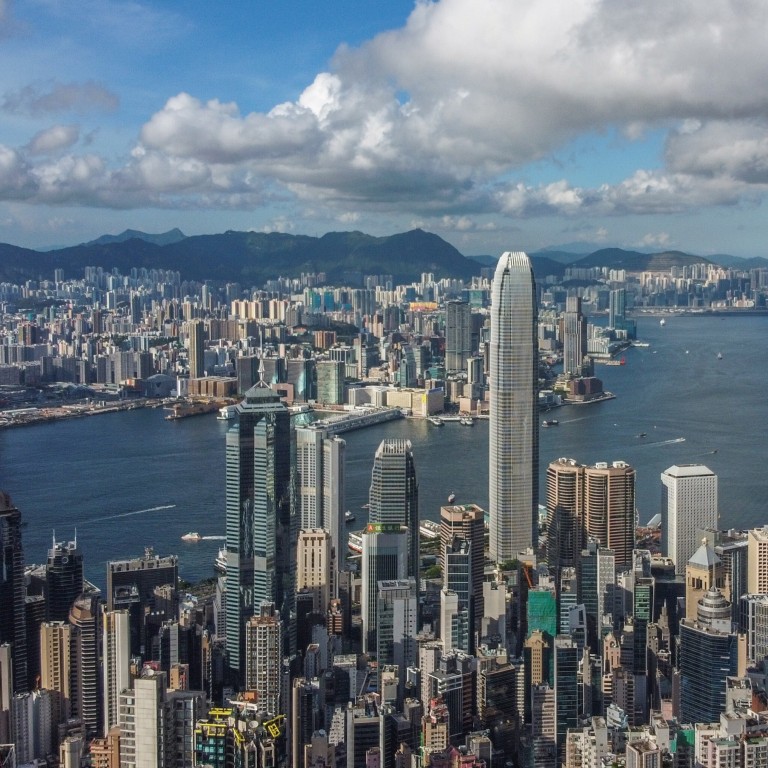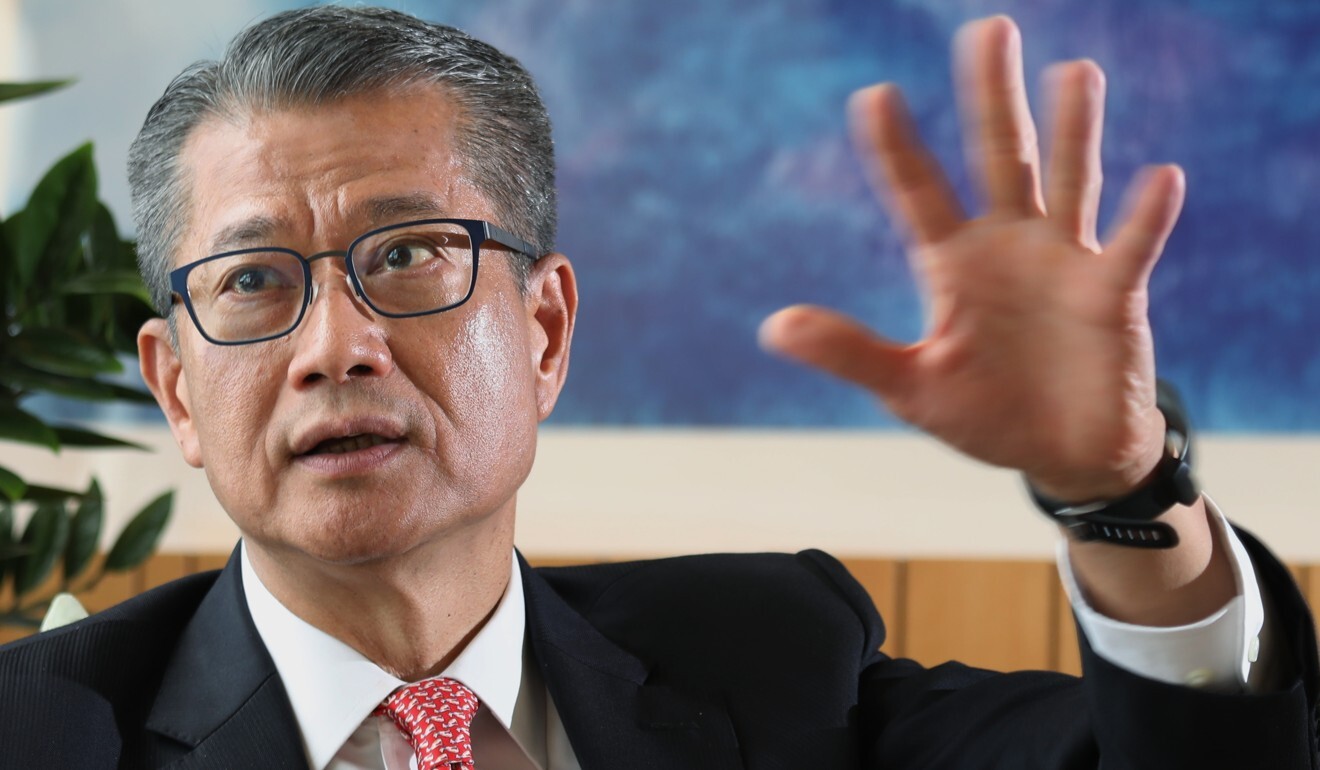
Hong Kong economy suffers biggest annual contraction on record, shrinking 6.1 per cent as coronavirus hammers tourism, local spending
- Key drivers of growth suffer from impact of global pandemic as city marks first back-to-back yearly decline of GDP since record-keeping began
- But government issues positive forecast for 2021 despite saying first half of year will be challenging
The government predicted growth for 2021 and will release its forecast next month, but economists did not expect a major rebound and said any improvement would just be the result of starting from a low base figure, with one warning uncertainties still remained over the supply of Covid-19 vaccines to the city.
Advance estimates on the city’s gross domestic product released on Friday marked the first back-to-back yearly decline since record-keeping began in 1961, according to the Census and Statistics Department. In 2019, the GDP edged down 1.2 per cent to HK$2.8 trillion.
While the slump matched the government’s previous forecast, the last time the local economy saw a similar decline was in 1998 in the wake of the Asian financial crisis, when there was a contraction of 5.9 per cent.
For the fourth quarter last year, GDP fell 3 per cent from the same period in 2019 in real terms, marking the sixth consecutive quarter in recession. But the bar for comparison was already significantly lowered by the beating the economy took from the social unrest, which intensified in the same period in 2019, when a 3 per cent contraction was recorded.

Compared with the previous quarter in 2020, that marked a rise of 0.2 per cent.
A government spokesman said the economy recovered further in the final quarter, but at a slow pace because of the latest wave of Covid-19 infections.
“As social stability in Hong Kong has been restored, the severe economic contraction last year was mainly due to the fallout from the Covid-19 pandemic,” he said.
He said consumption-related and tourism businesses such as accommodation and catering were hit particularly hard, and recorded a much sharper decline than the overall economy, but financial market activities remained robust. Recently, exports and imports of goods picked up visibly.
“The Hong Kong economy is expected to see positive growth for 2021 as a whole, but the economic situation in the first half of the year will remain challenging and the degree and speed of recovery is subject to a host of uncertainties, especially those about the pandemic situation,” he said.
Hong Kong retail body predicts coronavirus-linked slump will continue
Private consumption expenditure in 2020 fell 10.2 per cent from the previous year, while exports of services slumped 36.8 per cent. But the government’s consumption expenditure rose 7.8 per cent from 2019.
Officials said government expenditure stood at HK$620.1 billion and there was a deficit of HK$268.8 billion between April and December. By December 31, the fiscal reserves stood at HK$891.5 billion.
Earlier this month, finance chief Paul Chan Mo-po said for the coming budget in February, he planned to maintain or further increase public spending levels to protect livelihoods during the economic downturn despite the heavy strain on government funds.
Hand out HK$5,000 in digital vouchers to every Hong Kong resident: lawmakers
Iris Pang, Greater China economist at ING Bank, predicted the city’s GDP in 2021 would rise 4 per cent but only because of the low bar for year-on-year comparisons. Pang said the economy still faced uncertainties as it was still unclear if vaccines would be delivered on time.
Hong Kong has struck deals to procure 22.5 million shots from three suppliers, enough to cover the whole population. But the city’s vaccination campaign got off to a rocky start, with the roll-out suffering delays after mainland-based Sinovac did not deliver its doses by January as promised and failed to publish comprehensive final-stage trial data.
German firm BioNTech’s vaccines, manufactured in Europe, are now expected to be the first to arrive at the end of February. The third firm, AstraZeneca, has agreed to deliver in the middle of the year at the earliest, but the European Union this week threatened to restrict exports of the Anglo-Swedish firm outside the bloc amid a shortfall of promised doses.
Pang said there might be more unexpected circumstances in 2021 with new virus variants reported.
“If international travel remains largely suspended, it will affect Hong Kong severely,” she said.
Terence Chong Tai-leung, an associate professor of economics at Chinese University, forecast GDP to rise 5 per cent or more this year.
He said the key to boosting the economy was to allow activities such as evening dine-in services at restaurants to resume.
“But if the government does not allow businesses to reopen, it won’t help much even if we have vaccines,” Chong said.
Revised GDP figures and the 2021 forecast will be released next month.

